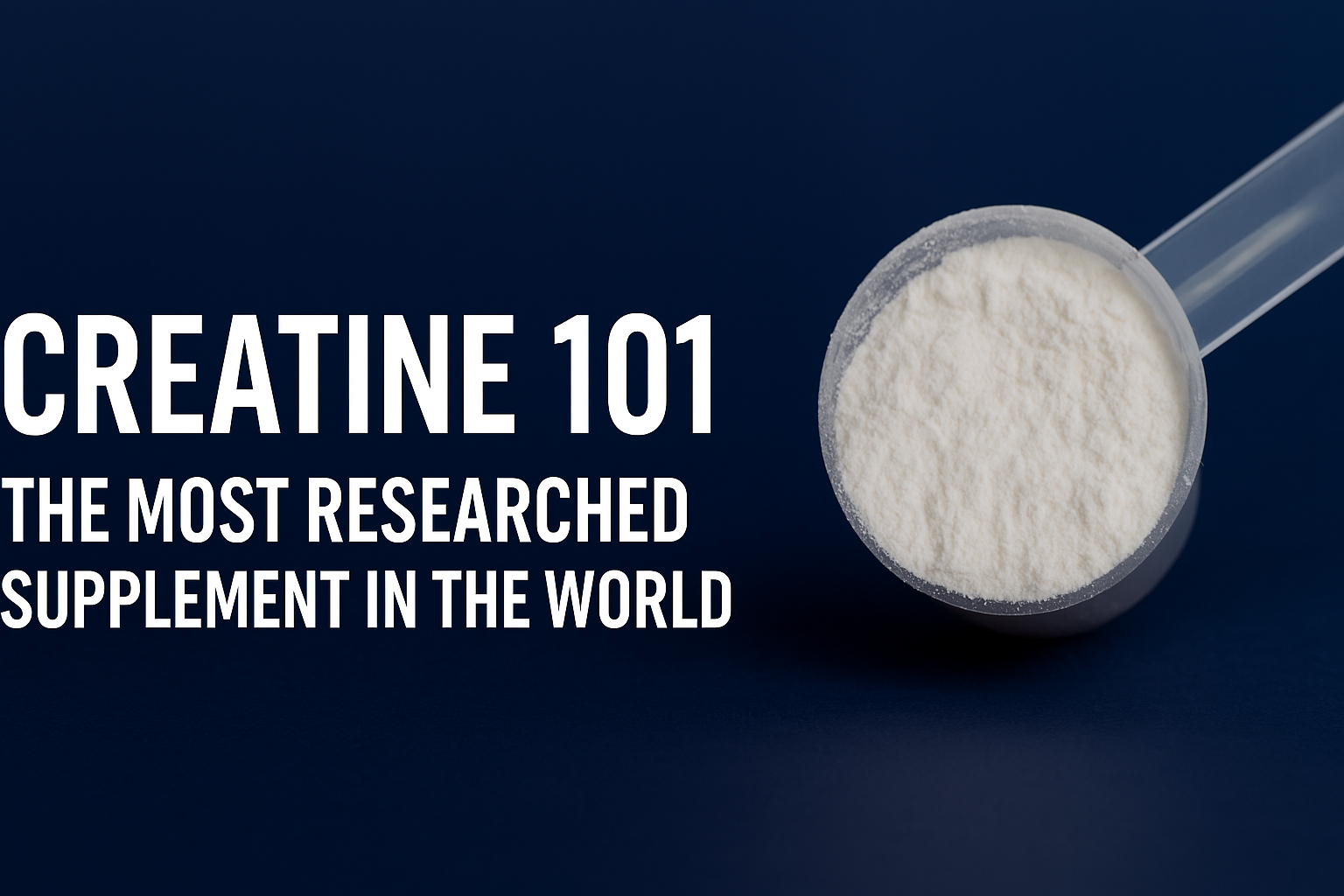Everything You Need to Know About This Muscle-Building Powerhouse
If you’ve spent any time in a gym or on fitness TikTok, chances are you’ve heard someone mention creatine. It’s one of the most talked-about supplements in the world — and for good reason. But with that popularity comes a lot of confusion, especially in Guyana where access to international fitness products is just beginning to grow.
So let’s set the record straight: What is creatine? Is it safe? Does it actually help you build muscle? And now that it’s finally available locally, should you consider trying it?
This is your no-nonsense guide to creatine — written for the Guyanese fitness community.
What Is Creatine?
Creatine is a naturally occurring compound found in your muscles and in small amounts in foods like red meat and fish. Your body also makes some of it on its own.
But here’s the key: Creatine helps your muscles produce energy during short bursts of intense activity — like lifting weights, sprinting, or doing high-intensity workouts.
When you supplement with creatine, you're giving your body more fuel to perform, which can lead to:
-
Increased strength and power
-
Faster muscle growth
-
Better recovery between sets
-
Improved performance during short, explosive movements
Why It’s the Most Researched Supplement
Creatine isn’t new. In fact, it’s been studied for over 30 years and is widely considered one of the safest and most effective performance supplements available.
Thousands of clinical studies support its benefits, and major sports science institutions consistently recommend it for athletes and gym-goers alike. Unlike some trend-based supplements, creatine has real science behind it.
Is Creatine Safe?
This is one of the most common questions — and the short answer is yes.
Creatine is safe for healthy adults when taken as directed. The most common form is creatine monohydrate, which has been shown to be both safe and effective in long-term studies.
Here are a few myths to clear up:
🚫 “Creatine damages your kidneys.”
👉 False. Creatine has not been shown to harm kidney function in healthy individuals. If you have a pre-existing kidney condition, it’s best to consult a doctor first.
🚫 “Creatine is a steroid.”
👉 Also false. Creatine is a legal, natural compound — not a steroid, not banned, and not harmful when used properly.
🚫 “It makes you bloated.”
👉 Some people experience slight water retention in the beginning, but it’s temporary and not harmful.
How Do You Take Creatine?
It’s very simple. The standard dose is:
-
5 grams per day of creatine monohydrate
-
Take it any time of day — before or after your workout, or even with a meal
-
No need to "cycle" or take breaks
Some people do a “loading phase” (20g per day for 5-7 days), but it's not necessary. Taking 5g daily will still lead to full muscle saturation — just at a slower pace.
And yes — drink plenty of water throughout the day.
Who Should Use Creatine?
Creatine is ideal for:
✅ Gym beginners trying to build strength
✅ Intermediate lifters looking to break plateaus
✅ Athletes who do short bursts of effort (like football or sprinting)
✅ Anyone wanting to gain lean muscle and improve recovery
It’s not a magic pill — but it’s one of the few supplements that actually helps you train better and get more from your workouts.
Creatine in Guyana: What’s Available Now?
Nutrition Guyana now carries pure creatine monohydrate products like ABE Unflavoured Creatine, available both in-gym and online. No additives, no fillers — just clean, research-backed creatine from a trusted brand.
Final Thoughts
If you're serious about your training — whether you're lifting weights, playing sports, or just staying active — creatine is one of the best supplements you can take.
It’s safe, affordable, and backed by decades of science. And now that it's finally accessible right here in Guyana, it’s a great time to see what all the hype is about for yourself.
Start simple. Stay consistent. Train hard.

